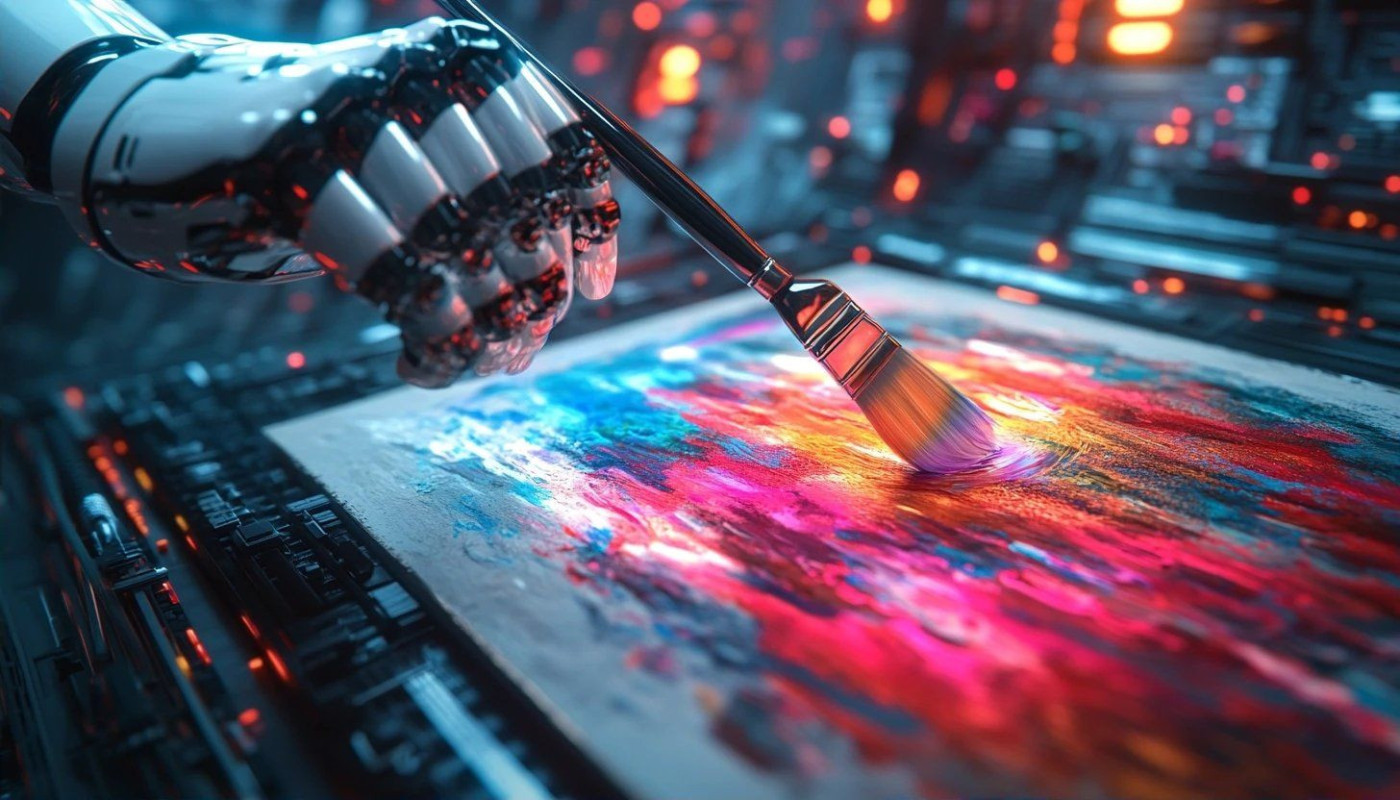Table of contents
Generative AI is rapidly altering the landscape of creative industries, offering unprecedented tools and capabilities that were once confined to the realm of science fiction. As algorithms learn to mimic human creativity, artists, designers, and creators across disciplines are experiencing a shift in both process and output. Dive into the upcoming sections to explore how this transformative technology is shaping the future of creative work, redefining boundaries, and opening new possibilities previously unimagined.
Transforming artistic creation
Generative AI is reshaping the landscape of creative industries by providing artists with tools that extend the boundaries of imagination. In fields such as digital art, music composition, and design, artists now leverage algorithmic creation to generate unique pieces that would be difficult or impossible to conceive manually. Algorithms powered by convolutional neural networks enable rapid prototyping, suggesting new visual styles or musical motifs, and facilitating brainstorming sessions where the line between human intuition and machine exploration becomes blurred. Deep learning techniques, particularly those utilizing neural networks, allow for the synthesis of art that seamlessly merges human direction with machine-driven innovation. This collaborative approach not only accelerates the creative process but also opens up unexplored avenues in both conceptualization and execution, making generative AI a driving force in the evolution of artistic practices across creative industries.
Redefining storytelling and media
Generative AI is transforming storytelling across film, television, and interactive experiences by streamlining narrative generation and offering innovative techniques for scripted media. In scriptwriting, AI-driven models can rapidly draft plot outlines, suggest dialogue, and help creators explore character arcs with greater efficiency. Automated content generation enables studios to produce tailored versions of scenes or entire stories, adapting to audience preferences and encouraging more dynamic engagement. This technology also powers immersive narratives in video games and virtual environments through procedural content, where story elements and environments are generated in real time, ensuring each user experiences a unique journey. For example, procedural generation has been pivotal in titles like No Man’s Sky and AI Dungeon, where world-building and storylines unfold differently for every participant.
The integration of generative AI into media production is not limited to entertainment; it is also reshaping advertising, educational content, and social platforms by creating personalized, compelling stories at scale. Senior media technologists specializing in AI-driven narratives emphasize that procedural generation not only enhances creativity but also optimizes production pipelines, reducing costs and time to market for innovative content. Studios and creators now turn to specialized platforms, such as that site, to access cutting-edge AI tools for narrative generation and content creation. These advancements signal a future where storytelling in scripted media becomes increasingly interactive, adaptive, and resonant with diverse audiences.
Empowering design innovation
Generative AI is transforming the creative industries by equipping designers with AI design tools that unlock unprecedented levels of innovation. In fashion, generative design algorithms generate unique patterns, unexpected material combinations, and avant-garde silhouettes, fueling fashion innovation beyond what was previously possible. In architecture, AI-driven systems analyze countless structural possibilities, optimizing for sustainability and aesthetics, while product designers leverage rapid prototyping to iterate and test ideas more efficiently. The synergy between machine intelligence and established design workflows accelerates concept development, reduces manual labor, and opens the door to new creative expressions. Through generative design, professionals across creative industries can explore complex forms and structures that challenge traditional limitations, propelling the field into a new era of inventive potential.
Personalizing user experiences
Generative AI is transforming creative industries by enabling hyper-personalized user experiences across various platforms. Through advanced recommendation systems, generative AI analyzes extensive user data and preferences to craft personalized content—ranging from custom music playlists to dynamic digital marketing campaigns. Data-driven creativity is now central to engaging audiences, as algorithms interpret behavioral patterns, demographic information, and user interactions to produce unique, meaningful outputs in real time. This approach significantly enhances user experience, making each interaction feel distinctly tailored to individual tastes and interests.
The business value of this level of personalization is profound within creative industries, as companies leveraging generative AI see increased user satisfaction, loyalty, and engagement. Personalized content not only drives deeper emotional connections but also optimizes marketing investments by targeting consumers with precision. Recommendation systems powered by generative AI facilitate more relevant product suggestions, adaptive storytelling, and interactive media that resonate on a personal level. When implemented effectively, this data-driven creativity positions brands at the forefront of innovation, ensuring sustained growth and differentiation in an increasingly competitive landscape.
Addressing ethical challenges
Generative AI is transforming creative industries by automating content production and sparking novel forms of expression, yet this shift brings several ethical considerations to the forefront. Issues surrounding authorship and originality arise, as AI-generated works challenge traditional definitions of creative ownership and make it increasingly complex to determine who holds the rights to new creations. Intellectual property frameworks struggle to keep pace, since existing laws often fail to clearly address whether the creator, the user, or the AI system itself should be credited or compensated for a work. In parallel, content authenticity becomes a pressing concern, with advanced generative AI tools enabling the creation of realistic images, music, and text that can be indistinguishable from human-made content, raising the risks of misinformation and unauthorized replication.
AI ethics plays a pivotal role in guiding responsible use of generative AI within creative industries. Algorithmic bias embedded in training datasets may inadvertently perpetuate stereotypes, marginalize certain voices, or limit the diversity of creative outputs. These biases not only affect representation but also undermine the fairness and inclusivity of AI-generated content. Transparency in how generative AI models are developed and deployed is necessary to build trust among creators and consumers alike. Legal and ethical debates continue to evolve around the attribution of creative works, especially as AI-generated outputs become increasingly prevalent and sophisticated.
To navigate these challenges, creative industries can adopt best practices such as implementing robust guidelines for disclosure and transparency, ensuring creators and audiences are aware when generative AI has played a role in content development. Collaboration with AI ethics policy experts will help develop industry standards that address intellectual property concerns and promote fair attribution. Regular audits for algorithmic bias, investment in diverse training datasets, and advocating for updates to copyright laws can further support the responsible advancement of generative AI. By prioritizing content authenticity, clear authorship, and ethical frameworks, creative industries can harness AI's potential while maintaining trust and protecting the rights of human creators.
On the same subject

How AI Is Revolutionizing Influencer Marketing Campaigns?

Maximizing Your Handheld Device For Optimal Gaming Performance

Innovative Digital Marketing Techniques For Better Conversion Rates

How Digital Planners Revolutionize Productivity For Modern Professionals

Exploring Innovative Packages For Enhancing Statistics Education

Understanding the User Experience: Design and Functionality of Betting Apps

